Don’t go to bed an hour earlier
It can be tempting to try and beat our body’s internal clock by heading to bed according to the clock—but that may not be wise, according to W. Christopher Winter, MD, president of Charlottesville Neurology and Sleep Medicine, and author of The Sleep Solution: Why Your Sleep Is Broken and How To Fix It. “Moving our clocks earlier an hour is probably the toughest transition for us to make as it creates a situation where many feel compelled to go to sleep an hour early,” he says. (In countries and states that participate, daylight saving time begins in the March and clocks are moved ahead one hour; when daylight saving ends in November, clocks are moved back one hour.)
Dr. Winter says that during this time you may feel frustrated when you’re trying to fall asleep but your brain won’t shut down. “This brief insomnia can lend itself to a difficult time sleeping at night and the inevitable early morning can make for a difficult first day,” says Dr. Winter. “As a rule, I do not even attempt to go to bed at the new earlier bedtime during the first day.” (Check out these 50 easy ways to sleep better.)
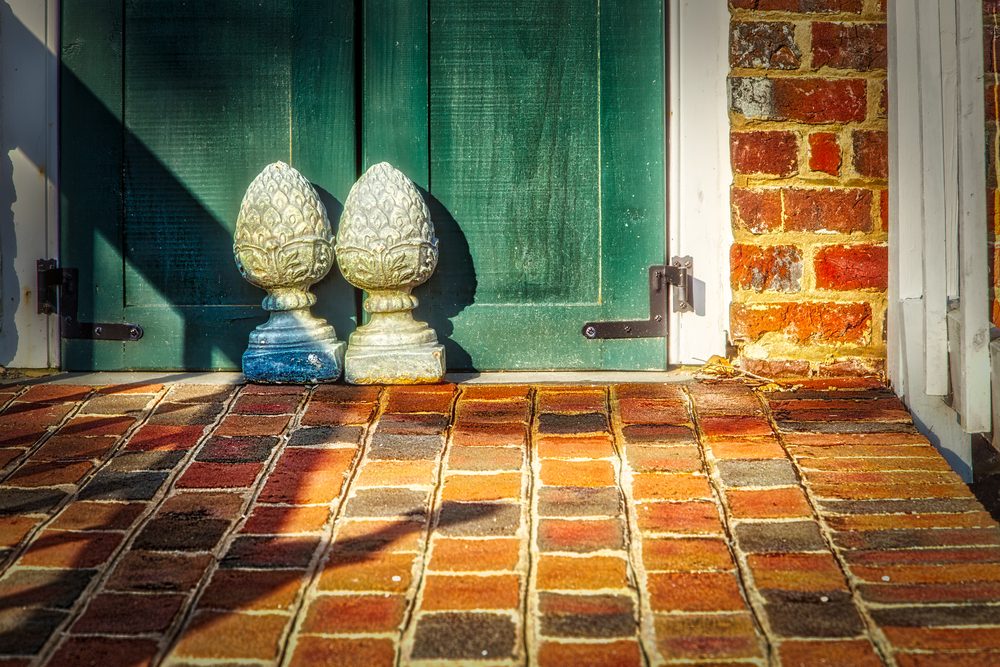
Don’t ignore the effects of light
“I also pay close attention to the light in my environment,” says Dr. Winter. He aims for sunlight exposure in the morning—”full-spectrum dynamic lighting,” he says—to suppress the sleep-promoting chemical melatonin and help reset his circadian rhythm. “In the evening, I want to avoid that lighting, particularly the blue-green light that will make my brain want to avoid sleep. Innovative lighting companies like Soraa offer lamps that can help ensure that you have the right kind of lighting to help regulate your circadian rhythm, which can make daylight saving time a much smoother transition.”
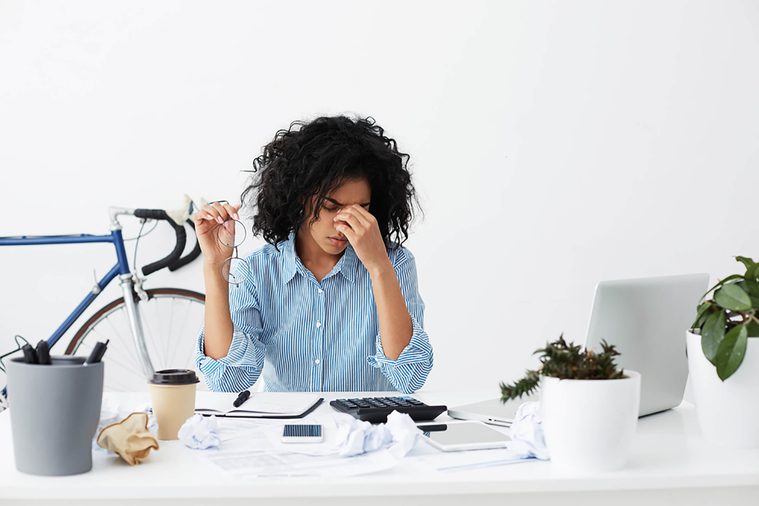
Don’t underestimate the impact of losing or gaining an hour
Mohammad M. Amin, MBBCH at the Stony Brook Medicine Sleep Disorders Center, says there’s a reason for the time change being scheduled on a weekend instead of during the week. He says, “Daylight saving time is scheduled on a weekend, and it’s not by chance. It does have consequences on human sleep and daytime alertness. There is a temporary imbalance in our intrinsic circadian timekeeping system caused by the de-synchronization of the abrupt change of desired sleep-wake times.” Here are 11 eye-opening facts about daylight saving time.

Don’t let your guard down while driving
Drowsy driving is one of the bigger hazards associated with the time change. Benjamin Smarr, PhD, National Institutes of Health Postdoctoral Fellow at UC Berkeley and Reverie sleep advisory board member explains, “The effects of sleep deprivation are quite dangerous, as it interferes with the healing and mental refreshing that good sleep provides. A lack of sleep can extend hospital stays and makes us irritable or forgetful.” And worst of all, Dr. Smarr says, sleep deprivation robs sharpness without anyone realizing it.
“After a single night of sleep deprivation, your reaction time and alertness are equivalent to being at the legal limit of alcohol consumption. However, because you don’t feel drunk after a poor night’s sleep, this can give a false sense of confidence or safety. Drowsy driving is a much larger public health problem than drunk driving. Sleep deprivation may seem like an inconsequential thing that one accidentally accumulates, but it is a pervasive and widespread public health problem that needs to be taken much more seriously than it is. So remember, when the time change hits, don’t think of it as just another day. Drive more cautiously and be extra nice as everyone adjusts, and remind yourself that the inconvenience is real—and biological.”

Consider melatonin
Joseph Krainin, MD, founder of Singular Sleep, recommends you give your body a little extra help during daylight saving. “Be strategic with the use of melatonin,” he says. “Melatonin exerts a powerful influence on our circadian rhythms. Taking some melatonin four to five hours before your desired bedtime can help you fall asleep at that time. So for instance, if your normal bedtime is 11 PM, take melatonin at 6 or 7 PM on the Sunday of the time change. Research shows that a small dose of melatonin, like 0.5 mg or less, may be as effective as larger doses (3 mg is the most common dose) and is less likely to result in drowsiness.” Find out if melatonin gummies really work.

Don’t cut out coffee
Just in case you’re not one of the millions already dependent on caffeine to get you started in the morning, Dr. Krainin recommends that you consider adding a cup of liquid fuel after daylight saving. “Be strategic with your use of caffeine,” he says. “If you’re dragging on the Monday after a time change, getting some caffeine can help combat mental fatigue. Just remember that it takes 20 to 30 minutes for your body to absorb the caffeine from your GI tract.” Learn what your sleep habits are trying to tell you.
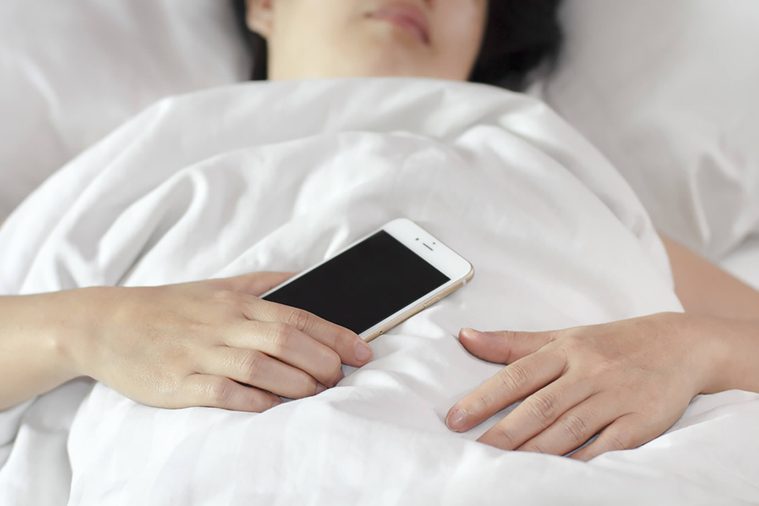
Don’t use tech before bed
Although scrolling through your social media at night may seem relaxing, it’s among the worst ways to prepare for sleep, according to experts at the National Sleep Foundation. They recommend against watching TV, sitting under bright lights, or staring at your computer, tablet, or phone—all can stimulate hormones that keep you up and delay snooze time.
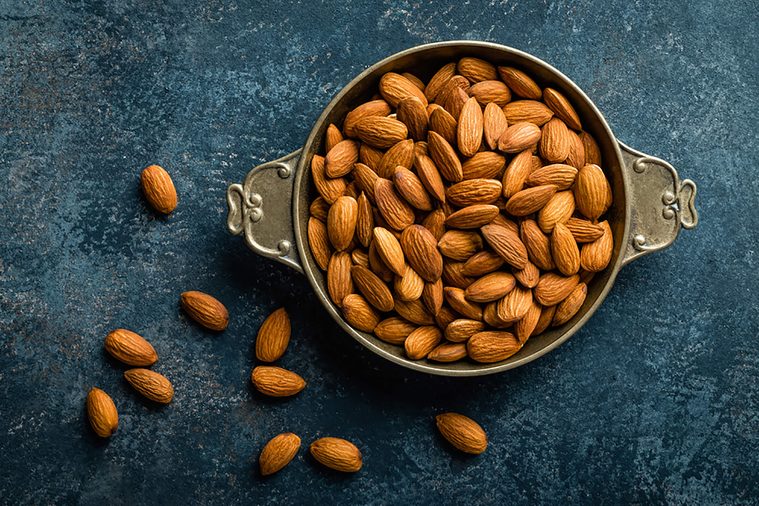
Don’t miss magnesium
Magnesium has long been touted as the ultimate mineral for promoting relaxation, but it can also help your body adjust to daylight saving time. Although the research is minimal, a study published in the Journal of Research in Medical Sciences, suggests that adequate magnesium supplementation can improve sleep, help you stay asleep, and ease waking up. Foods like almonds, cashews, and spinach, are rich in magnesium and a great addition to your diet any time of year to prevent the magnesium deficiency that plagues almost half of the American population. (Learn which states actually don’t observe daylight saving time.)
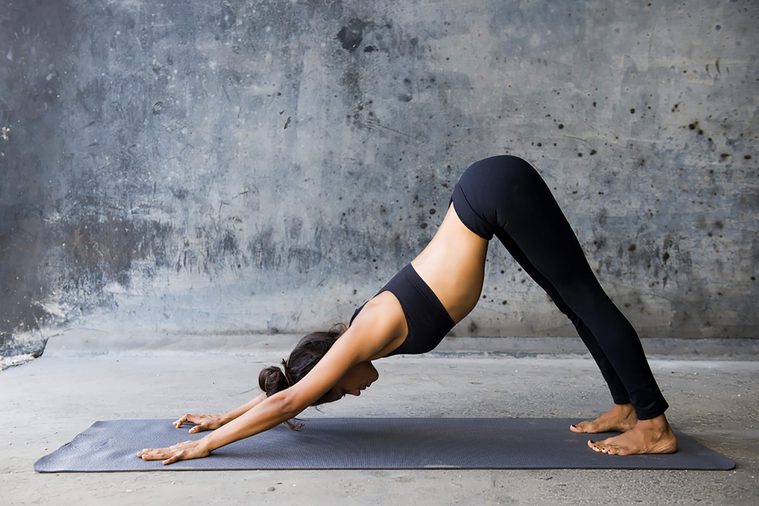
Don’t skip the gym
When attempting to adjust to daylight saving time, you might be tempted to forego some of your usual routines—like working out. This is not the time to do it, cautions Dr. Trattner. She recommends gentle exercise. Dr. Trattner explains, “Doing yoga, meditation, listening to relaxing music, taking a bath can all help promote oxytocin, a feel-good hormone that promotes sleep and lowers stress hormone.” Dr. Winter agrees. He says, “I never skip the gym during the first week of a time change.” Todd J. Swick, MD, recommends that if you don’t usually work out, you begin after daylight saving time starts or ends. He advises patients to start an exercise routine the Monday morning after the time change and engage in 20 to 30 minutes of mild-moderate exercise.
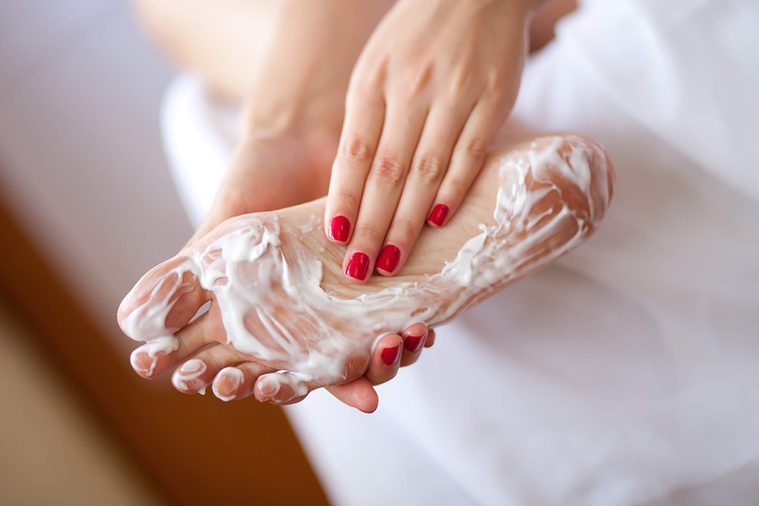
Don’t leave out the foot rubs
Dr. Trattner urges that you “don’t forget self-care. Give yourself a nighttime foot rub. Keep a thick moisturizing cream by your bed and before you turn off the light, give your feet a good three-minute massage (or better yet, ask a loved one to do it for you). This stimulates the production of oxytocin, a hormone that helps us relax and lowers cortisol, the fight or flight hormone.” Could it be time to get rid of daylight saving time? Here are some reasons to ponder.

Don’t squeeze in a bed-time snack
While it may be tempting to head to the pantry before going to bed, don’t do it, warns Dr. Trattner. She advises, “Ban bedtime snacks and keep a regular 12-hour fasting window. If you finish dinner at 8:30 PM, you shouldn’t eat breakfast until after 8:30 AM the next day. In medicine, both eastern and western, it is good to give yourself three hours between eating and going to bed. In traditional Chinese medicine, food retention is one of the reasons for insomnia. Give your body time to digest. If you eat before bed, your body thinks with the increase in glucose that it is time to work and move.”

Don’t forget to plan ahead
There is a time-change adjustment loophole that many don’t think of when preparing to lose an hour. Dr. Smarr explains that a simple gradual adjustment of your schedule might be all it takes to ensure a seamless transition through a time change. His advice: “For the smoothest transition, you can get ahead of the change by adjusting your schedule (e.g., alarm clock, meals, etc.) 15 minutes per day for the four days leading up to the change. This will ensure there is no sudden transition, as your body can easily cope with 15 minutes of change in a day.” These are the best ways to adjust to the time change.
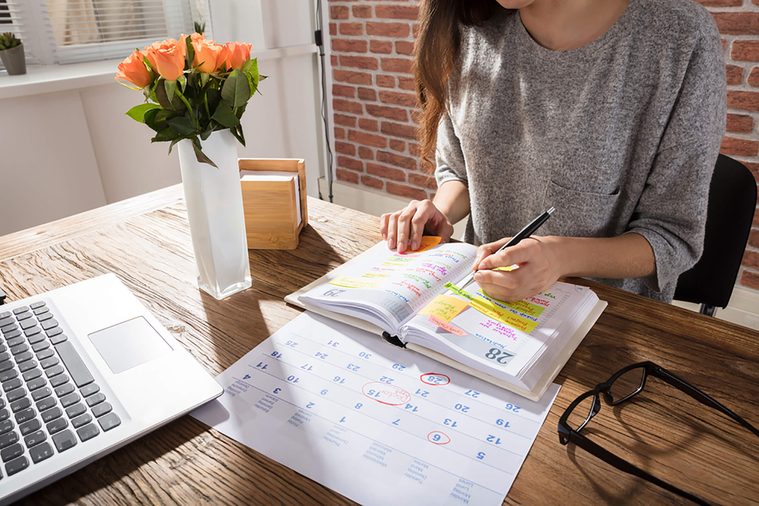
Don’t vary your schedule
Chris Brantner, certified sleep science coach and founder of Sleep Zoo, says maintaining a schedule with set sleep and wake times is key to surviving the adjustment to a time change. “Set a bedtime and wake time and stick to it,” he says. “Your body craves routine. Your internal clock wants to go to bed at a specific time and wants to wake at a specific time as well. Set times that allow you to get around eight hours of sleep and stick to them. If you get in the habit now, you’ll have an easier time readjusting when you lose the hour later.”

Don’t take a nap and skip the sugar
Many people try to make up for lost sleep with a mid-day nap; that’s a bad idea, says Kristin Daley, PhD, a licensed clinical psychologist specializing in sleep. “The key to surviving daylight saving time is to resist the urge to nap. Napping will only prolong the transition and make it harder all the way around,” she advises. “Resist sugar, too. We crave sugar when we’re sleep-deprived and seeking a quick jolt of energy. To give in means a brutal sugar crash is on the way.”
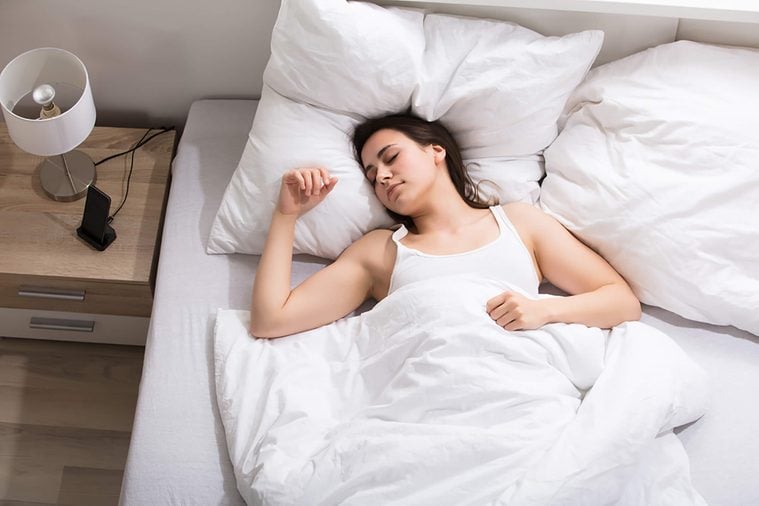
Never underestimate the health risk
Though many of us assume an hour of missed sleep isn’t a life-threatening situation, studies suggest otherwise. Dr. Swick explains: “Studies have shown that there are increased rates of acute myocardial infarctions (heart attacks) on the Monday following the spring time change.” The reason could be the physiologic stress induced by a shortened and fragmented sleep period, he says.
Hrayr Attarian, MD, professor of Neurology and Sleep Medicine at the Northwestern University School of Medicine, and co-author of the guide Women & Sleep, says sleep deprivation-related complications are real and can be serious. “Over the long term, continuous sleep deprivation can contribute to many health conditions like obesity, cardiovascular disease, diabetes, stroke, cancer, depression, anxiety, and dementia, among others,” he says. Check out these top sleep secrets from sleep doctors.
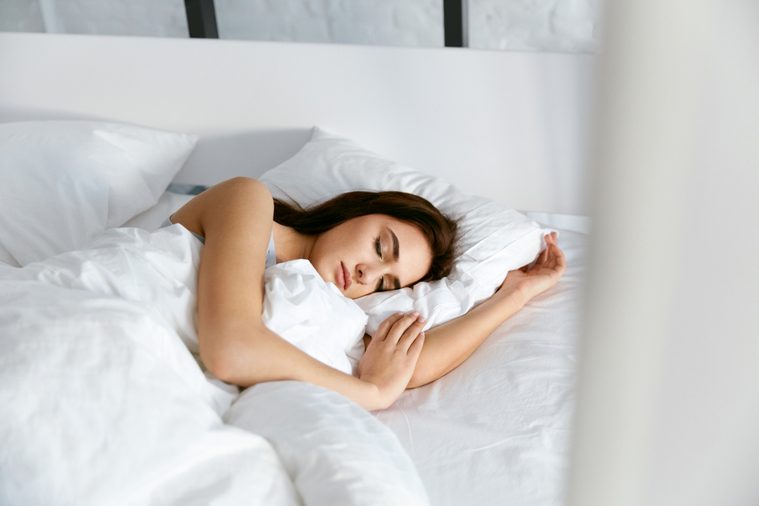
Women, stay vigilant
Dr. Attarian says that women have a harder time adjusting to time changes, for many reasons. He explains, “Women, in particular, should be vigilant about their sleep during the daylight saving transition because they already tend to be more sleep-deprived than men. There are many complex factors behind that, but in general, women lose out on sleep because of social factors, like heavy work and life demands. They also face barriers to high-quality sleep because of biological factors, like the hormone shifts that disrupt sleep through the lifespan.” Watch out for these other ways daylight saving could be wrecking your health.
